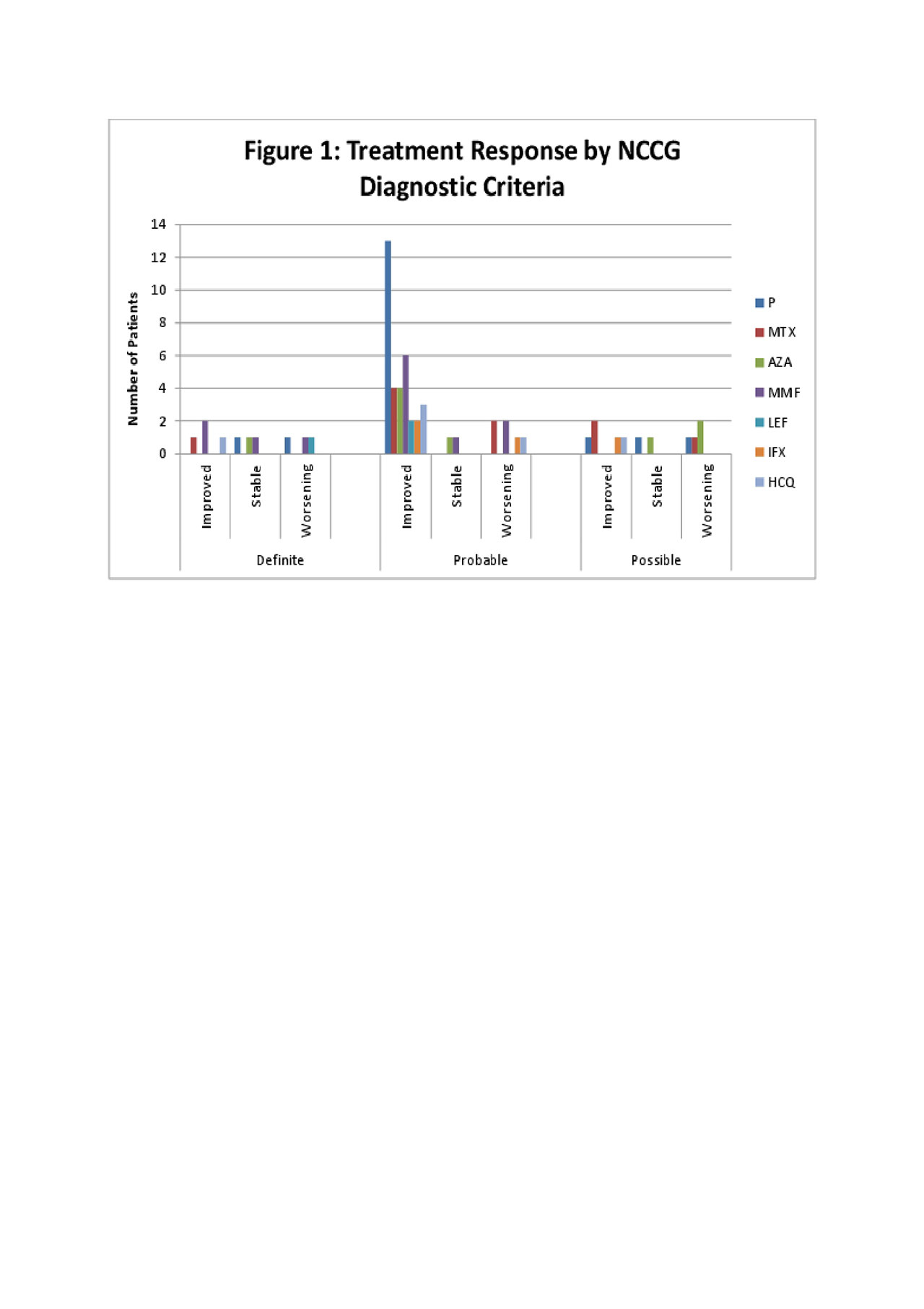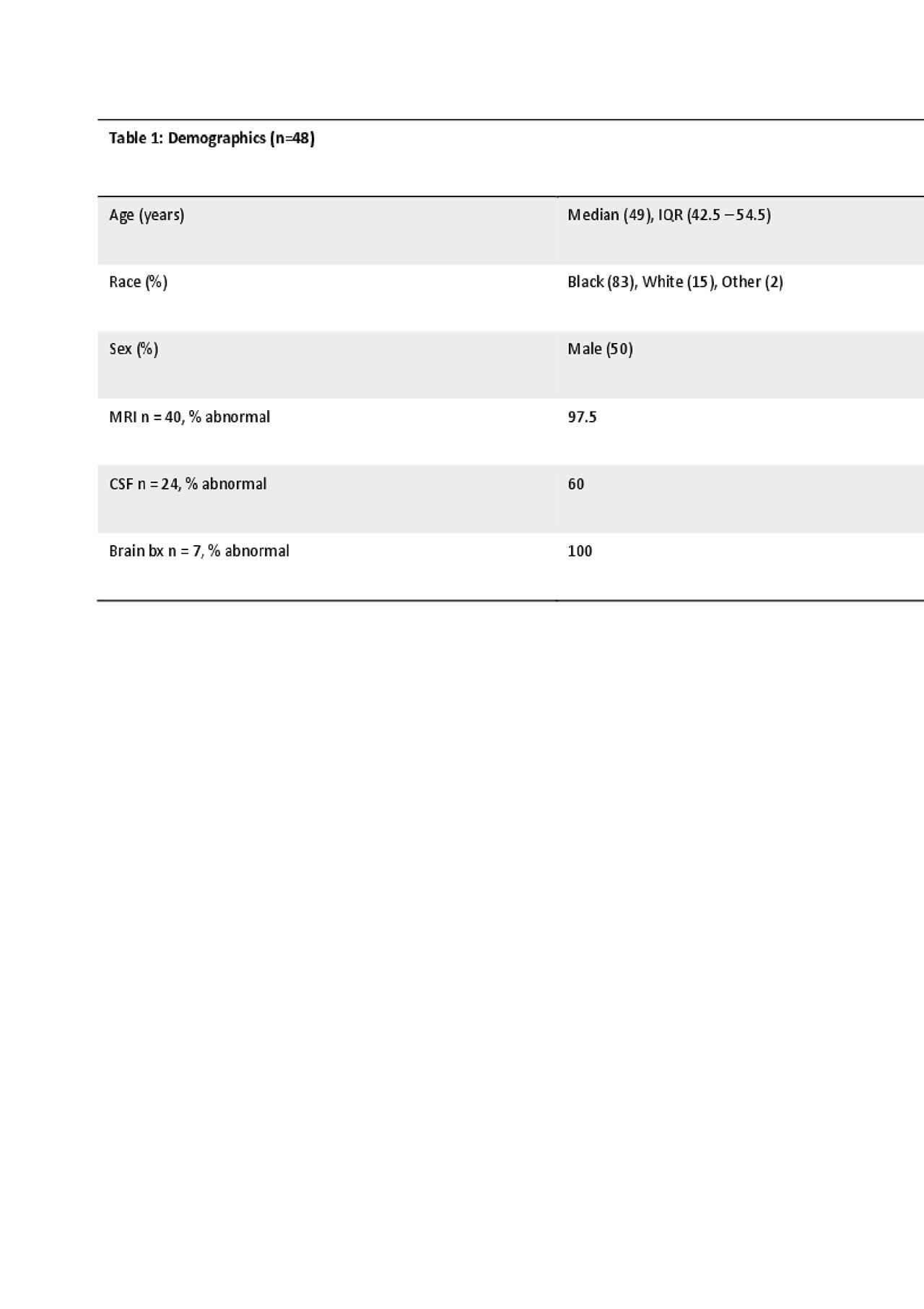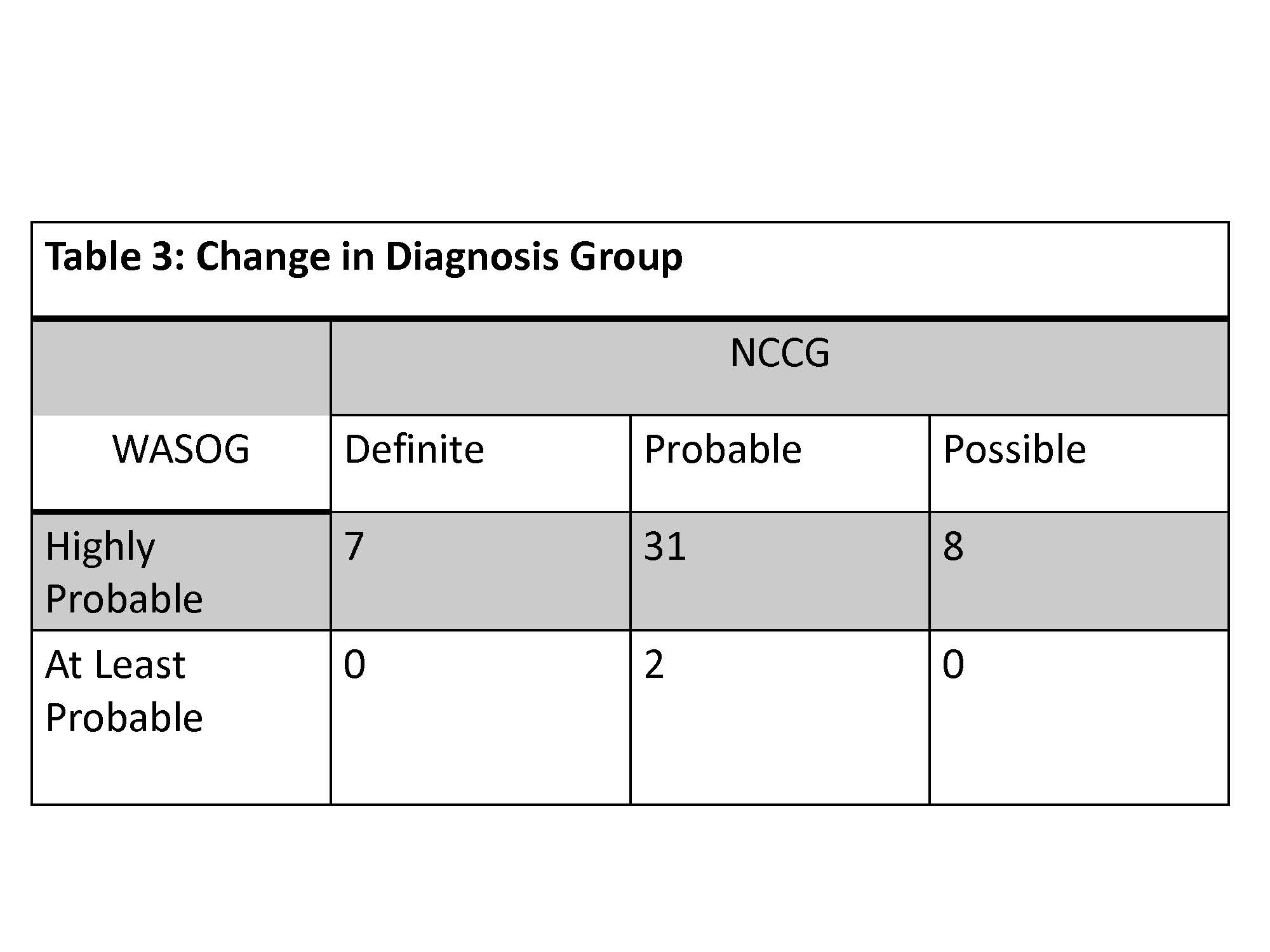Session Information
Session Type: Poster Session (Sunday)
Session Time: 9:00AM-11:00AM
Background/Purpose: The 2018 Neurosarcoidosis Consortium Consensus Group (NCCG) attempted to increase specificity in diagnosing neurocsarcoidosis from the 2013 World Association of Sarcoidosis and Other Granulomatous Diseases (WASOG) Organ Assessment Criteria. We assessed whether treatment response varied within these new classifications.
Methods: We performed a single center, retrospective study of patients with diagnosis of neurosarcoidosis from the VCU Sarcoidosis database containing data on 1298 patients from 2009 to 2019. Patients were classified by WASOG and NCCG criteria. Response to therapy was defined as improvement in symptoms on most recent therapeutic agent.
Results: 48 subjects (50% male, 83.3% black) were enrolled with a median of age 49. Of the 46 previously diagnosed as Highly Probable or Probable by WASOG criteria, 32 (66.7%) dropped from Highly Probable to Probable or from Probable to Possible by NCCG criteria. 7 (14.6%) dropped from Highly Probable to Possible due to lack of tissue biopsy from any source. 7 patients were defined as Definite by NCCG criteria due to positive brain biopsy and were previously Highly Probable by WASOG criteria. 28 (58.3%) patients improved on any therapy and 16 (33.3%) improved with exposure to glucocorticoids. There was no appreciable response to any specific therapy, both between NCCG classifications or the group as a whole (Figure 1).
Conclusion: NCCG criteria likely increase specificity for neurosarcoidosis by placing a greater emphasis on tissue biopsy. There was no observable difference in response to therapy, regardless of classification, emphasizing the need for future randomized controlled trials.
To cite this abstract in AMA style:
George T, Syed H, Iden T, Syed A, Le T, Zukas A. Neurosarcoidosis: An Evaluation Based on the Neurosarcoidosis Consortium Consensus Group [abstract]. Arthritis Rheumatol. 2019; 71 (suppl 10). https://acrabstracts.org/abstract/neurosarcoidosis-an-evaluation-based-on-the-neurosarcoidosis-consortium-consensus-group/. Accessed .« Back to 2019 ACR/ARP Annual Meeting
ACR Meeting Abstracts - https://acrabstracts.org/abstract/neurosarcoidosis-an-evaluation-based-on-the-neurosarcoidosis-consortium-consensus-group/



